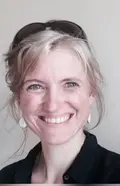Family memories of everyday life and the reality of rule under the SED dictatorship
Duration
01/2019
- 12/2022
Funding
Bundesministerium für Bildung und Forschung (BMBF)
Duration
10/2023
- 09/2025
Funding
Bundesministerium für Bildung und Forschung (BMBF)
Project management
Team
Research Assistants
Romy Mittelbach
Lorenz Hartung
Main project
- Dictatorship Experience and Transformation Prof. Dr. Christiane Kuller
Related projects
The first step in the project is to ask which images of history can be found in families today and how these differ, especially generationally. To this end, the memories of 15 selected Thuringian multi-generational families will be researched and made accessible. To what extent do they refer to the own experiences of the older family members, what role do the political and social changes during the Peaceful Revolution and in the years since 1990 play? Another question is how this family tradition relates to the interpretations of public remembrance culture and historiography and their changes over the last three decades. In contrast to previous studies, the interpretation does not focus primarily on the question of the (more or less successful) overcoming of SED rule. Rather, it will examine how the narratives about the most recently closed chapter of German history, the GDR past, are used by the interviewees to describe their complex present.
In a second step, the GDR holdings of the Thuringian State Archives will be researched for those events that have references to the family narratives. We will ask how written sources and narratives relate to each other. By exploring the complex relationships, a multi-perspective view of the narrated facts becomes possible, which at the same time emphasises the specific significance and limitations of the different sources.

